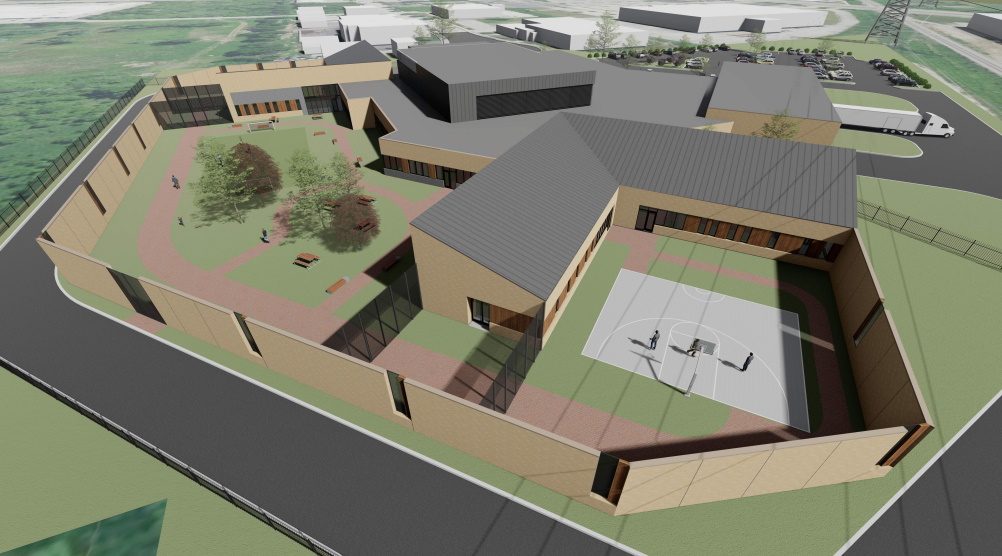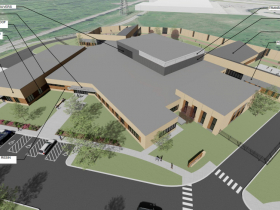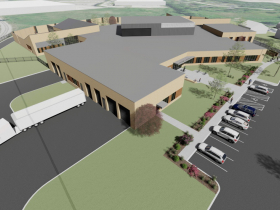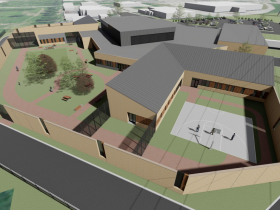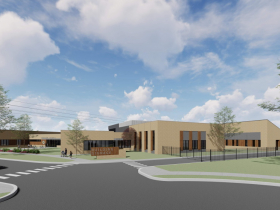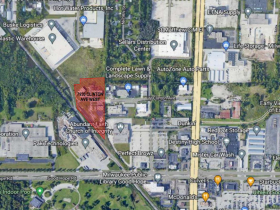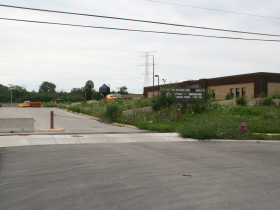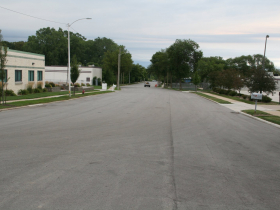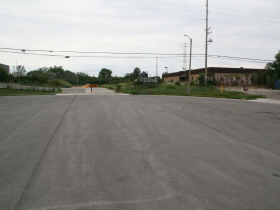Milwaukee Youth Prison Costs Grow 71%
Gov. Evers proposes additional $33 million for Lincoln Hills replacement.
A proposed Milwaukee replacement for the troubled Lincoln Hills youth prison in central Wisconsin is substantially more expensive than planned. The 32-bed prison’s price tag is now $78.4 million, up 71% from the previously approved $45.6 million.
It’s just the latest twist in a nearly decade-long effort to build a decentralized replacement after the 400-bed, Wausau-area Lincoln Hills facility gained national notoriety in 2015 for allegations of abuse of youth by staff, staff shortages and other problems. The state has paid out more than $25 million in settlements related to the facility.
The City of Milwaukee granted zoning approval for the new facility in January after several hours-long hearings. The move cleared a pathway for the Wisconsin Department of Corrections (DOC) to build a 32-bed facility just northwest of N. 76th St. and W. Good Hope Rd. On Feb. 3, the State Building Commission authorized spending $1.1 million to acquire the 6.6-acre site and $500,000 to begin site preparation work. A total of $2.4 million was previously authorized for design work.
In addition to the $4 million in design and acquisition costs, the state allocated $41.8 million in 2022 to build the facility. On Tuesday, Governor Tony Evers proposed an additional $32.6 million for the project in his $3.8 billion 2023-2025 capital budget. The proposal is subject to review by the building commission and Republican-controlled Joint Committee on Finance.
The state Legislature had initially approved building one or more replacement Type 1 juvenile corrections facility in 2018, with a 2021 deadline. But the state has repeatedly struggled to make progress on the measure.
Under Evers’ proposal, the new facility would open in May 2026. During the city zoning approval process, DOC officials said they hoped to open the new facility in 2025.
The DOC would construct an approximately 72,000-square-foot building at 7930 W. Clinton Ave, a large site at the end of a dead-end road. At the rear, a 16-foot-tall wall would enclose an outdoor recreation area. A ring road would wrap the building, with a six-foot-tall, steel fence enclosing the portion of the road that borders the secured area. It would only house boys.
“Despite the stigma of a correctional facility, we are committed to being good neighbors and have the experience to maintain our facility on Clinton Avenue,” said state DOC Secretary Kevin Carr during a Jan. 10 Zoning, Neighborhoods & Development Committee hearing. He said the Lincoln Hills facility, now well below its capacity, is still far too large and the 32-bed setup was the ideal configuration.
Additionally, Carr said the facility would keep youth closer to home, enable the hiring of a more diverse workforce and improve rehabilitation outcomes by providing better programming and therapy for both inmates and their families.
Many nearby residents expressed frustration that the facility is being advanced while the area council seat is vacant. Chantia Lewis was removed from office in July for felony misconduct in office. The three candidates who spoke at public hearings, all in favor of rejection or delay, failed to advance to the April 4 general election. When the full council considered the measure on Jan. 17, Two council members objected, Milele A. Coggs and Mark Chambers, Jr. while Khalif Rainey abstained from voting.
Several people who live near the proposed facility have repeatedly testified against the proposal, arguing it would have a negative impact on the neighborhood, while many involved in the youth justice system spoke of the need to develop a facility in the Milwaukee area and improve rehabilitative care.
State Senator Lena Taylor, who represents the area, has supported the proposal. State Assembly members LaKeshia Myers and Dora Drake, who will trade off representing the site as a result of the redistricting process, have supported bringing the facility to Milwaukee.
Ald. Scott Spiker said he understood why the area council representative might oppose it. But with or without their objection, he said he would still support the proposal as he believes it is good for the city. He said he didn’t think there was a location in the city that wouldn’t generate a hotly-contested hearing.
“We have listened to you. We’ve heard you. We see you. This is a difficult decision,” said Alderwoman Marina Dimitrijevic. She said it was unusual that the city would even be asked to weigh in on the decision, but Wisconsin Act 185 requires city approval. “I will admit I am nervous about this vote because I do not want to support the status quo. The status quo is not working.”
Ald. Russell W. Stamper, II said he was moved to vote for the zoning change based on the testimony of those who were formerly incarcerated. “It does have to go somewhere and where they put it is the most secluded place available,” he said.
Most youth offenders, said the DOC officials, do not spend their entire sentence at a Type 1 facility and instead transfer to a state-financed, county-run “Type 2” facility or a lower-level, county-owned detention center like the Vel R. Phillips Juvenile Justice Center. Milwaukee County is also pursuing the expansion of the Phillips facility.
The state had most recently considered upgrading the Felmers O. Chaney Correctional Center, 2825 N. 30th St., into a “Type 1” facility, but multiple local stakeholders objected to that proposal. That followed failures to advance other sites in Milwaukee.
At the current rate, it costs Milwaukee County more than $420,000 per year to have a young person incarcerated at the Lincoln Hills facility because a number of other counties no longer send youth there and the population has dropped. There were 60 boys at the facility according to a January DOC report.
The new Milwaukee site is currently owned by an affiliate of Poblocki Paving.
Southern Wisconsin juvenile male offenders were previously housed at the Ethan Allen School for Boys in the Town of Delafield, but Governor Scott Walker closed that facility and one for girls in Racine County as part of a cost-cutting move in 2011. Given the condition of Ethan Allen, a former sanitarium, it would reportedly cost several million dollars to reopen the facility.
Renderings and Site
Site
If you think stories like this are important, become a member of Urban Milwaukee and help support real, independent journalism. Plus you get some cool added benefits.
More about the Lincoln Hills and Copper Lake Facilities
- Lincoln Hills and Copper Lake Youth Facilities Found in Compliance, Triggering End to Court-Ordered Monitoring Set in Place by 2017 Lawsuit - American Civil Liberties Union of Wisconsin - Jan 28th, 2026
- Gov. Evers, Doc Celebrate Completion Of Successful Reforms at Lincoln Hills and Copper Lake Schools - Gov. Tony Evers - Jan 28th, 2026
- Gov. Evers Announces State Building Commission Approves Approximately $185 Million in Projects Across Wisconsin - Gov. Tony Evers - Dec 17th, 2025
- Building Commission OKs Planning Funds to Reorganize Wisconsin Prisons - Sarah Lehr - Oct 29th, 2025
- State Building Commission Releases Funding Gov. Evers Requested to Revamp Corrections Facilities - Gov. Tony Evers - Oct 28th, 2025
- Gov. Evers Announces Evers Administration to Move Forward with Comprehensive Plans to Revamp Corrections Facilities - Gov. Tony Evers - Oct 14th, 2025
- For The First Time, Wisconsin’s Youth Prisons Are Fully Compliant With Required Reforms - Rich Kremer - Oct 3rd, 2025
- Inmate Sentenced For Role in Youth Counselor’s Death at Troubled Prison - Isiah Holmes - Aug 11th, 2025
- Evers’ Prison Plan Receives Mixed Reviews - WPR Staff - Feb 21st, 2025
- ‘First of its Kind in Wisconsin’ Collaboration Will Support Disabled Incarcerated Youth - Andrew Kennard - Dec 12th, 2024
Read more about Lincoln Hills and Copper Lake Facilities here
Political Contributions Tracker
Displaying political contributions between people mentioned in this story. Learn more.
- April 1, 2020 - Lena Taylor received $100 from LaKeshia Myers
- February 23, 2016 - Chantia Lewis received $100 from Kevin Carr


